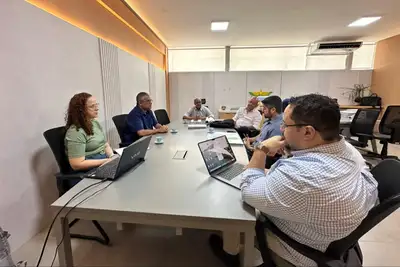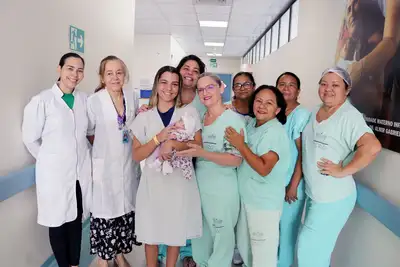Field Hospital Strengthens Health Care During COP30
Structure set up at the Usina da Paz Jurunas/Condor in Belém expands the care network with 24-hour operation and open access to the community

The State Department of Public Health (Sespa), in partnership with the National Force of the Unified Health System (FN-SUS), delivered on Thursday (6) the National Force Field Hospital (HCamp), installed at the Usina da Paz Jurunas/Condor in Belém. The temporary structure was set up to reinforce health care during the 30th Conference of the Parties of the UN on Climate Change (COP30).
With low and medium complexity care, in an open-door regime for the population, the Hospital will ensure reception and quick support to both local residents and visitors participating in the international event.

Located in one of the most populous areas of the capital of Pará, the HCamp will operate 24 hours a day, with a structure composed of eight modules — six focused on direct assistance to the population and two dedicated to logistical and administrative support, covering everything from triage and emergency to regulation and logistics. The unit will have the capacity to provide general care of low and medium complexity, ensuring resolution and integration with the local health network during COP30.
Concrete Action - For the coordinator of the National Force Field Hospital of the SUS, Djair Soares, the initiative represents an important reinforcement to the response capacity of the Unified Health System, expanding the population's access to urgent and emergency services, and ensuring readiness at a time of great movement in the capital. “It is a concrete action of cooperation between federal, state, and municipal spheres to protect lives and strengthen the SUS, operating from November 7 to 25,” he informed.

The director of Development and Audit of Health Services at Sespa (Dass), Guilherme Mesquita, highlighted that the Hospital will have the capacity to attend to 200 patients per day. The unit has a reception area, where risk classification is performed by a nurse, in addition to two medical offices, a medication room, and a red room with two beds designated for the care of severe patients, where they will remain until they are transferred.
“Priority care will be for clinical cases, such as colds, headaches, and diarrhea. However, the Hospital is prepared to receive patients in more serious conditions, perform stabilization, and refer them to the reference service. In total, 145 health professionals will be working during COP30,” he explained.

The State Secretary of Public Health, Ivete Gadelha Vaz, emphasized that the initiative is a demonstration of the government's commitment to the care and safety of the population. “This joint action symbolizes our commitment to health, safety, and well-being not only of COP30 participants but also of the population of Pará. We are working to ensure a prepared, integrated, and efficient care network throughout the event,” highlighted the head of Sespa.
Text: Ascom/Sespa









